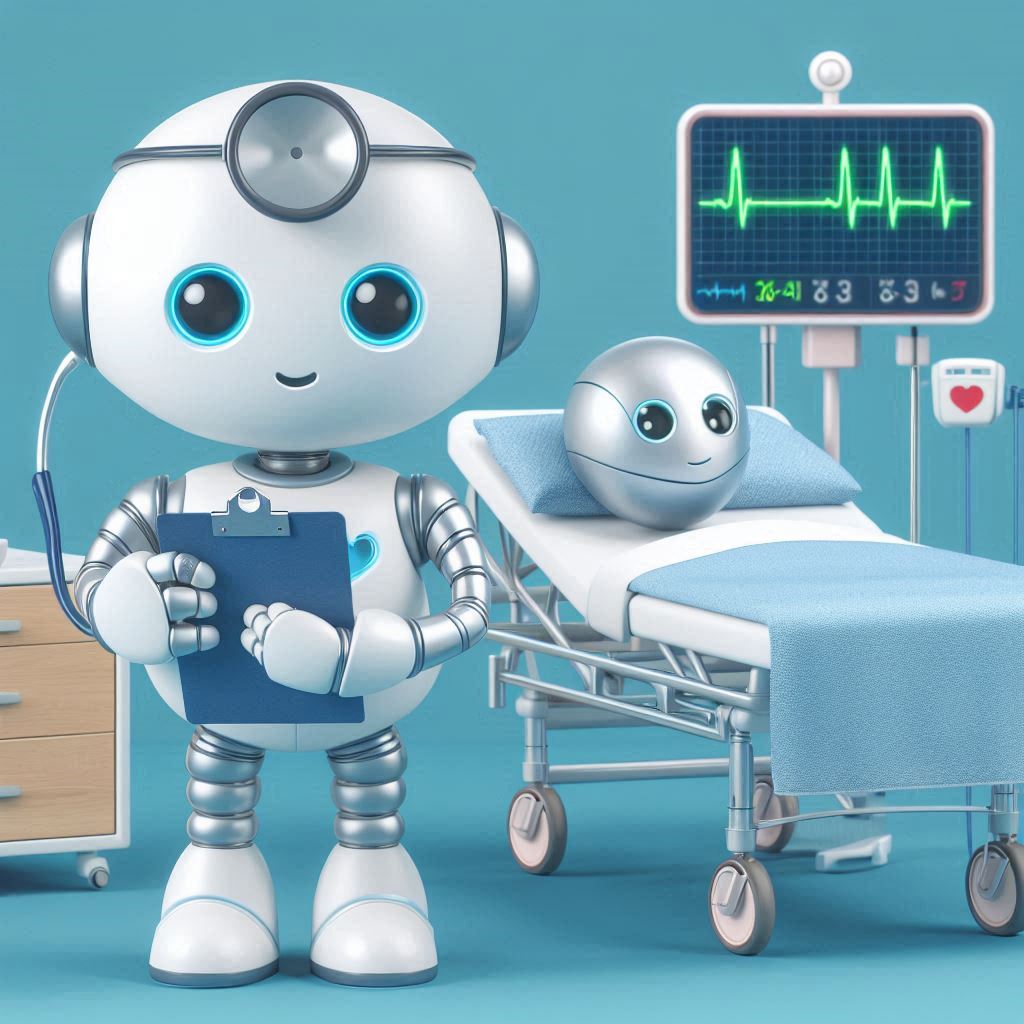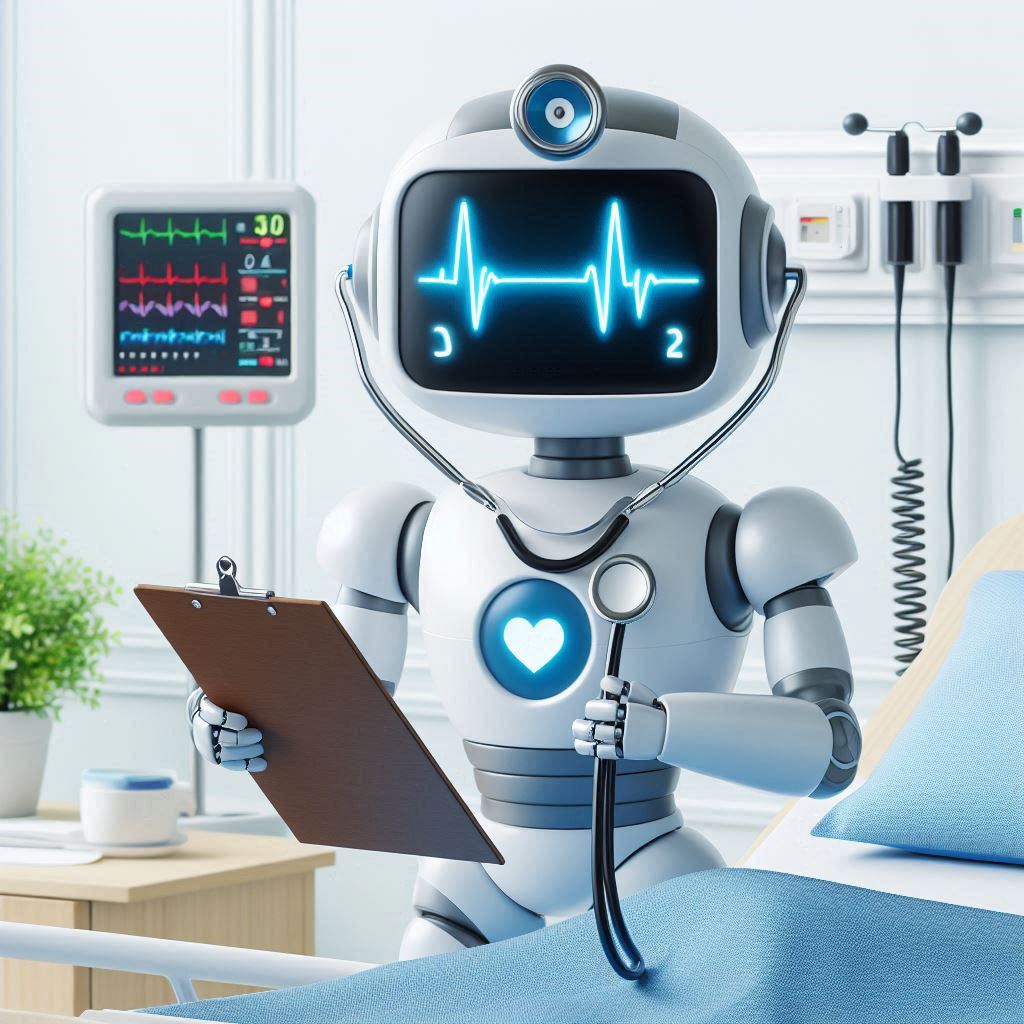Table of Contents
Toggle
Artificial Intelligence: The Future of Medicine and Patient Care
The role of Artificial Intelligence (AI) continues to grow in numerous industries including the healthcare sector. AI has applications across healthcare, expanding from improving diagnostic accuracy to personalizing treatment plans. This article looks at the many forms in which AI is shaping healthcare, from benefits to challenges.
Introduction to AI in Healthcare
Artificial Intelligence is the simulation of human processes by machine, especially computer systems. In healthcare, AI applications can be as basic or advanced as algorithms analysing simple medical data to machine learning methods that make accurate predictions about future outcomes. These technologies are intended to improve patient care, optimize operations and control costs

Enhancing Diagnostic Accuracy
Improving diagnostic accuracy is one of the most tremendous effects that AI has had in healthcare. Especially deep learning, ableto analyze medical imaging for example X-rays, MRIs or CTscanners with very high reliability from AC algorithms in this respect. We have seen AI systems trained to recognize the signs of diseases such as cancer earlier and more accurate than human radiologists for instance.
Research has found AI can detect: some types of breast cancer up to five years before human mammography. A similar example of this is the use of AI to diagnose diabetic retinopathy in eye scans, which has great potential as blindness prevention for patients with diabetes.
Personalized Treatment Plans
Using AI to accommodate treatment regimen based on patient specific data. AI can mine patterns for personalized medicine by analyzing integration of large data: Electronic health records (EHRS), genetic, and lifestyle. This is a way to address treatments to each patient’s unique condition and ensure better outcomes.
For example, an AI algorithm can estimate the response of a patient to one medication over another based on his genetic profile. By eliminating the need for lengthy trial-and-error of diagnostics or searching for right drug and dosage) they make it possible for treatments to be both more efficient, effective but also refine them in a way to minimize potential side effects.
PROACTIVE CARE WITH PREDICTIVE ANALYTICS
Predictive Analytics Further, AI is making a huge impact in the domain of predictive analytics as well. It can predict health issues plaguing a person, based on historical data and trends; it calls for remedial steps before they take an ugly turn. Taking this proactive approach to healthcare means that early interventions are possible, and these are often the most impactful changes in patient outcomes highly reduce healthcare costs.
For instance, AI can find patterns in patient data which suggest the possibility of future hospital readmissions, hence allowing healthcare providers to take preventative action. In addition artificial intelligence (ai) predictive models can anticipate patients that are at risk of chronic illnesses such heart disease or diabetes, which will allow us the early life style interventions and maintenance.
Automating Administrative Workloads
In addition, the use of AI in healthcare is changing how administration works. AI can reduce the burden on healthcare workers by automating mundane tasks – providing more time to focus directly on patient care. NLP (Natural Language Processing) algorithms can transcribe and interpret medical notes better as well, efficient inpatient documentation, date indusial for EHRs.
Additional, AI-based chatbots and virtual assistants are replacing desk jobs by responding to general questions, booking appointments or advising simple medical treatments. By enabling prompt replies to patient inquiries, and lessening waiting times these tools enhance productivity of patients which ultimately translates into higher profitability.
Advancing Telemedicine
The COVID-19 pandemic has driven increased adoption of telemedicine and AI is contributing significantly to its evolution. Remote Consultation: AI-powered platforms process patient data in real-time and provide decision support to healthcare providers. This provides patients with rapidly and appropriate diagnoses as well treatment plans at a distance.
Wearables to wear out; Only Aging in Place, even AI-enabled technologies will bring under remote monitoring and prompt the clinical management team if it detects something serious. Apart from the fact that it is easier to manage chronic patients and well as ensure patient compliance with treatment plans.
Abstract: Challenges & Ethical Consideration
There are many upsides to using AI in healthcare, but several challenges and ethical concerns also come with the territory. Initially, data privacy and security are the most important concerns. It is clear that the use of AI relies on processing massive quantities of personal health data, which has led to concerns about how this sort of information should be stored and against whom it can or cannot be disclosed.
Further, there is the subject of bias in AI algorithms as well. If AI models are trained on data that is not inclusive, it can produce biased results. To avoid this, it is imperative that AI systems are trained in an exhaustive and inclusive set of data.
Similarly, the featured site discusses an ethical concern for the healthcare workforce. Though AI has the potential to enhance what healthcare professionals can do, there is also a fear of job replacement and new skill sets required to work in partnership with emerging tech.
Future Directions
AI is set to provide a promising future for healthcare as improvements continue and the impact becomes more widespread in industries. When combined with blockchain, the internet of things (IoT), and 5G among other new technologies AI takes on unconventional approaches for patient care or administrative efficiency.
On the other hand, researchers are harnessing AI for drug discovery, genomics and personalized nutrition. As AI moves in the future, it will become increasingly important to address these ethical and regulatory obstacles to create a more responsible use of health care technology.
Conclusion
AI is drastically changing the face of healthcare, from enhancing diagnostic accuracy to personalizing treatment plans, enabling predictive analytics and improving tele-medicine services. There are still challenges and ethical issues to address, however the promise of AI in healthcare is indeed great. And so on with nurturing the patient safety, data privacy and inclusivity required in implementing AI into healthcare systems conducive all to finally enjoying what tech has given us yet. If AI is the way of future then Healthcare definitely falls in there!

